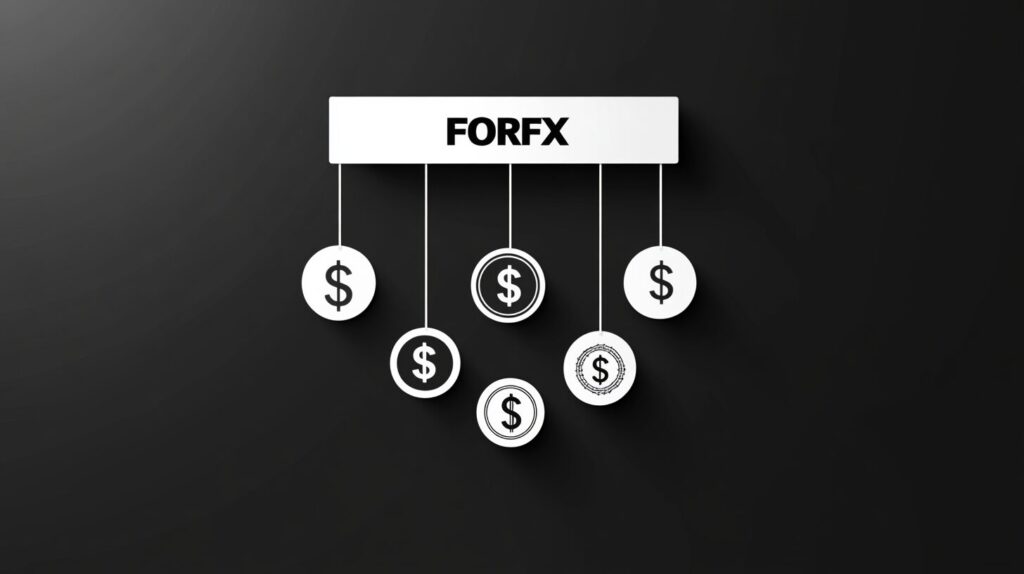FOREX or Foreign Exchange Market, known as a decentralized global marketplace where currencies are traded. It is the world’s largest and most liquid market, with daily trading volumes transcending $6 trillion. This market operates 24 hours a day, but five days a week, and plays a crucial role in international trade and investment.
Definition, Meaning, and Example of FOREX (Foreign Exchange Market) in Crypto
The FOREX market enables the exchange of currencies, enabling businesses and people to convert one currency into another. For example, a U.S. company buying goods from Europe needs to exchange dollars for euros. In the context of cryptocurrency, FOREX can also involve trading digital currencies against traditional fiat currencies.
The Foreign Exchange Market is considered a network of buyers and sellers that exchange one currency for another at an agreed price. It contains almost every aspect of buying, selling, and exchanging cryptocurrencies at current or determined prices.
Unlike traditional markets, it operates 24/5 and is not centralized, meaning transactions occur through various global financial institutions, banks, and brokers.
Consider this; where an investor wants to buy Bitcoin using U.S. dollars. Investors enter the FOREX market through a cryptocurrency exchange platform, where they can exchange USD for Bitcoin.
This transaction is similar to traditional FOREX trading but involves digital currency. As cryptocurrencies become more mainstream, their trading against fiat currencies (like USD, EUR, JPY) has grown, integrating them into the global FOREX ecosystem.
The Importance of the Foreign Exchange Market
The FOREX market is vital for global trade and investment. It enables countries to import and export goods and services, facilitates foreign investment, and helps businesses manage currency risks. Offering a mechanism for price discovery and currency valuation ensures liquidity and stability in the global economy.
How Does FOREX (Foreign Exchange Market) Work?
The FOREX market works via a network of banks, brokers, and financial institutions. Trading occurs over-the-counter (OTC), meaning there is no central exchange. Transactions are conducted electronically via trading platforms. Major participants include central banks, commercial banks, investment firms, corporations, and individual traders. The market functions through currency pairs, with each pair showing the exchange rate between two currencies.
Functions of FOREX
The FOREX market performs several key functions:
- Currency Conversion: Facilitating international trade and investment by converting one currency to another.
- Hedging: Allowing businesses to protect against potential losses from currency fluctuations.
- Speculation: Providing opportunities for traders to profit from changes in exchange rates.
- Arbitrage: Exploiting price differences in different markets to make a profit.
Different Types of Foreign Exchange Markets
The FOREX market can be categorized into several types, each serving different purposes and involving different instruments and participants:
- Spot Market
- Definition: The spot market is where currencies are traded for immediate delivery. Transactions are settled “on the spot,” typically within two business days.
- Characteristics: High liquidity and quick transactions. The exchange rate is determined by current market supply and demand.
- Forward Market
- Definition: The forward market involves contracts to buy or sell and trade currencies at a predetermined rate on a future date.
- Characteristics: Customized contracts not traded on exchanges. They are used by businesses to hedge against future currency fluctuations.
- Futures Market
- Definition: Similar to the forward market, but involves standardized contracts traded on exchanges such as the Chicago Mercantile Exchange (CME).
- Characteristics: High regulation and transparency. Contracts specify the amount of currency, settlement date, and price.
- Options Market
- Definition: The options market provides the proper, but not the responsibility, to buy or sell cryptocurrency at a specific rate on or before a certain date.
- Characteristics: Flexibility in trading. Options can be utilized for hedging or theoretical purposes.
- Swap Market
- Definition: Involves simultaneous borrowing and lending of two different currencies between two parties.
- Characteristics: Commonly used by financial institutions to manage liquidity and currency risk. Swaps can range from a few days to several years.
What Is the Difference Between FOREX and the Foreign Exchange Market?
FOREX and the foreign exchange market refer to the same concept; however, “FOREX” is a shorthand term commonly used by traders and financial professionals. Both terms describe the global marketplace for buying and selling currencies.
Advantages and Disadvantages of the FOREX
The FOREX market offers several benefits but also comes with inherent risks and challenges:
Advantages:
- Liquidity: The high volume of trading ensures liquidity, allowing large transactions without significantly affecting prices.
- Accessibility: The market works 24 hours a day but five days a week, allowing traders from all time zones to participate.
- Leverage: Traders can use leverage to control larger positions with a less amount of capital, potentially increasing their profits.
- Diverse Opportunities: With a wide range of currency pairs available, traders can diversify their portfolios and strategies.
- Low Transaction Costs: Due to the high competition among brokers, transaction costs in the FOREX market are generally low.
Disadvantages:
- Volatility: The market’s high volatility can lead to significant losses, especially for inexperienced traders.
- Complexity: The FOREX market requires a deep understanding of global economics, politics, and market forces, making it challenging for beginners.
- Leverage Risk: While leverage can amplify profits, it can also amplify losses, leading to substantial financial risk.
- Market Manipulation: The decentralized nature of the market can sometimes lead to price manipulation by large players.
- Emotional Stress: The need for constant monitoring and quick decision-making can be stressful and lead to emotional trading, which often results in losses.
What is the Feature of Foreign Exchange Market?
- Decentralization: No central marketplace; trading occurs electronically.
- Liquidity: High trading volumes ensure continuous availability of buyers and sellers.
- 24-Hour Operation: Open around the clock, accommodating various time zones.
- Diverse Participants: Includes banks, financial institutions, corporations, governments, and individual traders.
- Currency Pairs: Currencies can be traded in pairs, with each pair representing a specific exchange rate.




